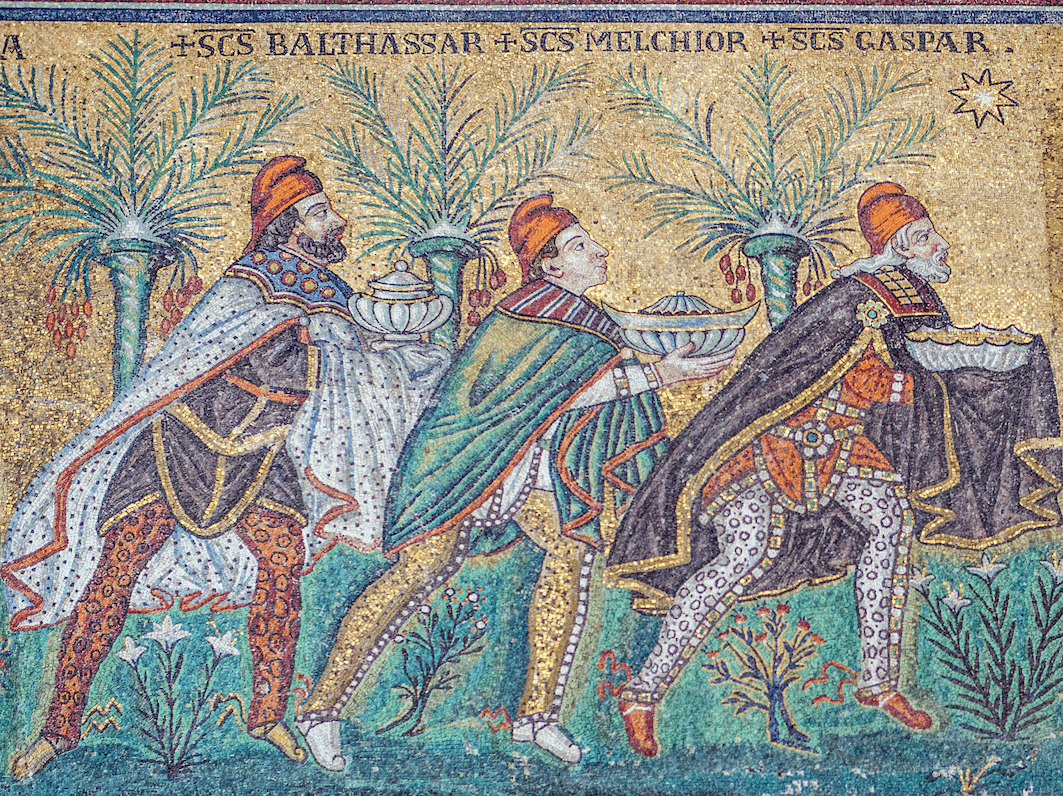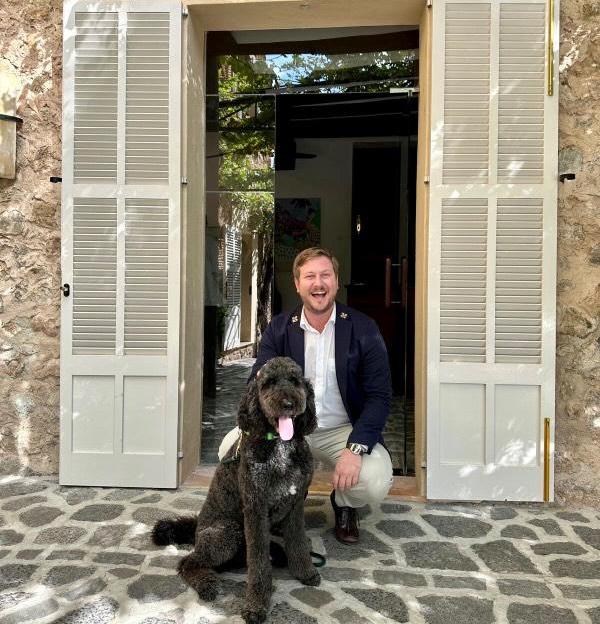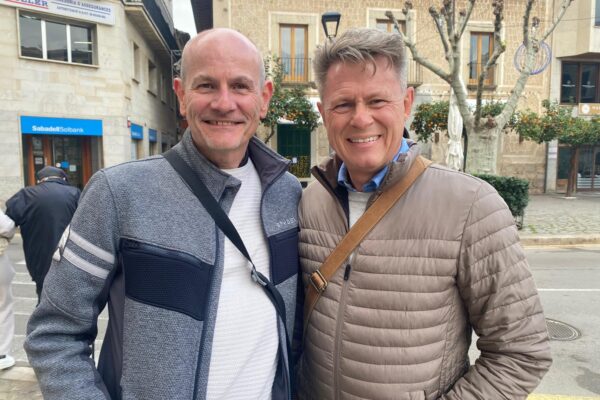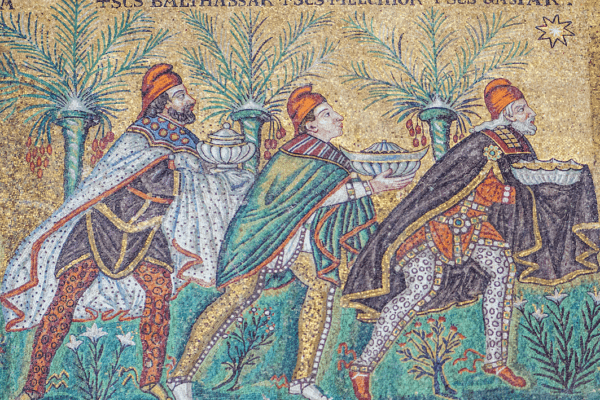As they parade in all their gaudy, glittery glory through the streets of Spain’s cities, towns, and villages on January 5, the Three Kings remain somewhat aloof — waving occasionally but usually leaving to their minions the task of dispensing largesse and sweets. However, there’s another Christmas tradition that knocks these regal figures off their lofty pedestals, giving them speaking roles and a healthy dose of humanity as they bicker, stumble, and joke their way toward Bethlehem.
Welcome to the world of the Adoració dels Tres Reis d’Orient, a medieval-rooted mystery play and spectacle infused with humor, satire, and a distinctly Mallorcan take on life This is not just the well-known tale of kings following a star; it’s a rich tapestry of faith, folly, and fun that continues to evolve, with performances held every year on January 6 in churches across the island and, most memorably, against the epic backdrop of Palma’s cathedral and city walls.
A Medieval Tradition Takes Root
The origins of the Adoration of the Magi lie in the Gospel of Matthew, which tells of three Wise Men — later interpreted as kings — following a star to Bethlehem, bearing gifts of gold, frankincense, and myrrh. By the early medieval period, this story had grown into a cornerstone of Christian tradition. The oldest known liturgical drama in Spain, dating back to the 12th century, is preserved in Toledo Cathedral and recounts the story of the Biblical Magi. Scholars believe it was inspired by an earlier play originating in France.
During the Middle Ages, the Magi were imbued with rich symbolism. Representing Gentiles from different continents and ethnicities — Europe, Asia, and Africa — they underscored the universal nature of Christianity. Their gifts, each laden with theological significance, also became key symbols: gold for kingship, frankincense for divinity, and myrrh for mortality. But medieval mystery plays took the story further, blending devotion with drama to captivate audiences and adding familiar references and local touches that might strike a chord with the common folk.
From Medieval Mystery Plays to 20th-century Satire
Fast forward to 1966, and the tale of the Magi finds a fresh and wry expression on the island through Adoració dels Tres Reis d’Orient, a satirical poetic play by Llorenç Moyà i Gilabert. Written in Catalan, Moyà’s work continues the tradition of turning the biblical narrative into a lively and humorous commentary on human folly and societal contradictions.
This year marks the 40th anniversary of performances at Ses Voltes in Palma and the event has gradually become a beloved staple for concluding the Christmas festivities every January 6. Over the years, more than 900 people — ranging from local celebrities to everyday islanders — have taken the stage, bringing humor and humanity to the Magi’s journey.
Legendary Spanish actress Sara Montiel once played the Virgin Mary, while an eclectic cast of painters, politicians, writers, and musicians has kept the tradition fresh and dynamic. Actors frequently veer wildly off script and the Magi are relatable, flawed characters prone to squabbling over directions or questioning their gift choices. A pompous King Herod provides comic relief, lampooning political arrogance and ambition.
Despite its lighthearted tone, the play’s themes of faith, humility, and the search for meaning resonate deeply, offering both a reflection on the human condition and a critique of contemporary issues like the housing crisis, tourism, and political scandals.
Staging the Adoration in Mallorca Today
The tradition of celebrating the Adoration of the Magi remains alive and well in Mallorca today, blending the medieval with the modern and the sacred with the profane and downright raucous. Indeed, Moyà’s play has become a beloved part of the island’s cultural calendar. This year’s celebration takes place on January 6 at 12:00 at Ses Voltes in Palma, just below the cathedral. If rain threatens to dampen the festivities, fear not — the show will move to the Xesc Forteza Theatre at 13:00.
And don’t forget to check your local parish church — many host their own versions of the Magi’s journey, keeping this timeless tradition alive in communities across the island.








